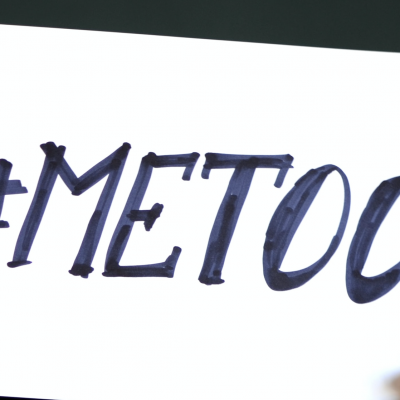Details
Article
With the US elections ending 2016, the year ahead did not seem very promising from a feminist perspective. As a response, millions of people mobilized in the Women’s March weeks after the inauguration, which became a much-needed revitalization of the struggle for gender equality, this time around attempting to create a more intersectional conversation on feminism. In this momentum, the #MeToo campaign ended 2017 on a note of hope for those experiencing sexism and sexual assault as part of their work-life. Once again, millions of people (mostly women) mobilized (mostly online) and demanded to be heard.
We have seen this before: second wave feminism was partly driven by courageous women sharing stories of assault and abuse decades ago. The themes of the #MeToo campaign are similar to the banners of the 1970’s: the personal is political and sisterhood is powerful – relevant as ever. The campaign thus reminds us of a feminist past, but is also an example of the power and potential social media holds for the future.
Though activist Tamara Burke started the #MeToo-campaign more than a decade ago, it needed a movie star to take off.
Though activist Tamara Burke started the #MeToo-campaign more than a decade ago, it needed a movie star to take off. Somehow Denmark is thereby reminded of how powerful American pop-culture is, when we too needed Hollywood to start our own conversation on sexism and sexual harassment. Compared to the US, Sweden and Norway, the Danish movie-industry has been criticized for being too passive in taking a clear stand against sexual harassment. The reactions on the campaign have been divided. On one hand, men have supported women speaking up. But as always when we discuss gender equality in Denmark, the premise of the debate is questioned: IS gender equality even a problem? IS sexual assault a real issue? The critical voices have mostly (perhaps not surprisingly) been men. Likely due to the fact that the industries in questions are all creative, this has become a recurring argument and justification for men not being able to respect female co-workers: the unsafe work-environment has been explained as a result of visionary, creative and boundary-pushing artists, where grabbing and groping is part of the game. Women speaking out have been ridiculed and trivialized, and several voices critical of #MeToo have referred to Danish liberalism and humor as values we need to protect, calling out ‘high-pitched feminists’ for being too puritan. It is a sad attempt to derail the discussion and cling on to a nostalgic and outdated masculinity that refuses to see the new day on the horizon. Of course, #MeToo pisses certain powerful men off who want to do business as usual – highlighting and criticizing privileges and power relations, that tends to be invisible for those who hold them is core of the feminist movement. That is not an easy job.
The #MeToo momentum and revolutionary potential also urges us to keep asking questions: who has the economic and social capital necessary to turn the personal into political?
In January however, more than 1100 women and men from the movie- and theater industry signed the #TimesUp manifest, stating zero-tolerance to a work-culture characterized by sexism, victim blaming and power-abuse. The past months we have witnessed male bosses in the movie industry, television and journalism being accused of violations and consequently fired. Since #TimesUp, critical voices have been limited in the media, as the Danish film- and theater industry is working to implement policies ensuring safe and fair working conditions for everybody.
Sexual harassment is a mechanism of exclusion, of which the #MeToo-campaign has highlighted the scale and extent. The campaign’s success lies in the redistribution of shame and stigma as well as in the challenging of our gendered understanding of victimhood: the women speaking up are agents of change and demonstrates how issues of assault are not individual but structural which calls for structural solutions. Two weeks ago, the Danish Minister of Equality presented a plan for combating sexual harassment in the workplace (large unions have been working with this for years). This will hopefully have an impact on a broader scale and potentially make a difference for people in various industries.
The #MeToo momentum and revolutionary potential also urges us to keep asking questions: who has the economic and social capital necessary to turn the personal into political? How can this translate into actual institutional and political change for everyone – also those with less glamorous jobs? What is the reach of sisterhood solidarity, who does not have the possibility of speaking up, and how do we ensure the inclusion of those voices too? Time will show if the opportunity #MeToo provides to combat sexual harassment in workplaces is actually taken.


